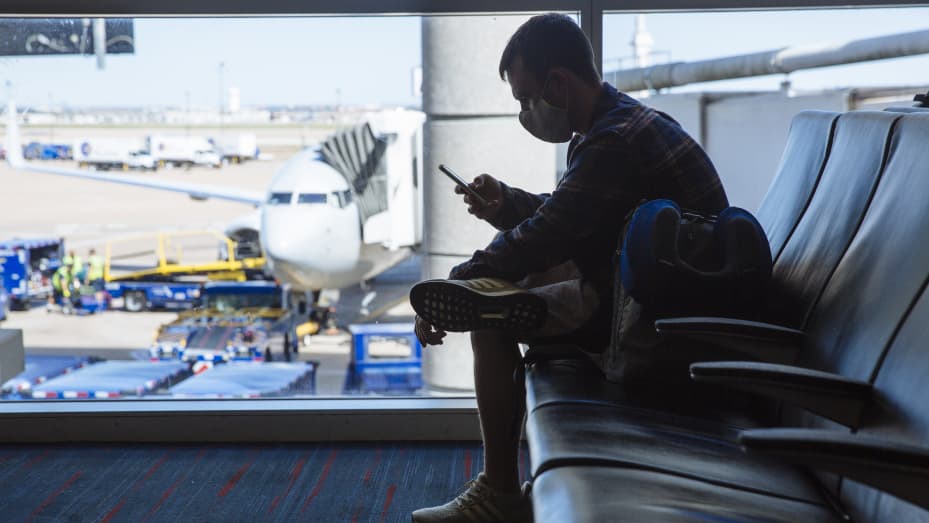This 30-year-old made $3,000 giving up her seat on a Delta flight: ‘I almost broke my neck sprinting down the aisles’


Everyone has air travel horror stories: delayed redeyes, lost luggage, unruly pets who chew through travel crates. Megan Keaveny at least managed to make some money from hers.
A lot of money, actually: $3,000, which the 30-year-old real estate broker received from Delta Air Lines for giving up her seat on a flight – which originally cost $358 – from New York’s LaGuardia Airport to West Palm Beach, Florida, according to Keaveny.
“While we were boarding, a gate agent announced, ’We need 22 people to get off this flight. We’re offering $1,300 to any volunteers,” Keaveny tells CNBC Make It. She texted her boyfriend and friends, who had already boarded, and said she would only trade her spot for $2,000.
Minutes later, she boarded the plane. Then, the agent announced that the price had risen to $2,500. By the time Keaveny and a handful of other passengers deplaned, the price was up to $3,000. “I almost broke my neck sprinting down the aisle,” she says.
Experts say Keaveny’s experience, while perhaps more lucrative than usual, isn’t uncommon: This summer, airlines are particularly likely to offer large sums of cash to passengers willing to give up their seats at the airport gate, primarily due to overbooked flights.
Flights are more oversold, delayed and canceled than ever before because airlines “aggressively tried to capture an expected surge in demand,” says Willis Orlando, a senior flight expert at Scott’s Cheap Flights.
Throughout the spring, Americans made plenty of summer travel plans, Orlando says. But then, when summer rolled around, airlines found themselves without enough staff to support their promised itineraries – especially after furloughing and firing crew members throughout the pandemic, and dealing with large numbers of Covid illnesses among remaining staffers.
When planes are overbooked, airlines don’t technically need passengers to volunteer to rebook – they can kick passengers off flights without asking. But “bumped” passengers are protected by federal law: If you’re involuntarily removed from a flight and your rebooked flight is set to leave one to two hours after your original flight’s departure, the airline must pay you two times your fare, up to $750.
If your rebooked flight is scheduled for more than two hours later, it’s four times your fare, up to $1,550.
Airlines offer volunteers more money than they’re required to pay for two reasons, Orlando says: preserving their customer service reputation and keeping their flights as on time as possible.
“If a plane is delayed by two hours because of an issue of getting folks off an aircraft, there are not enough crews and pilots to ensure that it doesn’t ripple through their entire network,” he says. “Before the pandemic, they weren’t risking their entire network falling apart with one or two flights going haywire.”
Orlando says you can maximize the money you get for volunteering your seat by never taking the airline’s first offer. “We always advise people to run to the front end and ask them for whatever the last person gets,” he says. “That’s always the sweetest deal.”
Keaveny ended up flying to Fort Lauderdale, and taking a roughly $50 Uber to West Palm Beach. She says she arrived only a couple of hours after her friends, and would consider volunteering her seat on future flights. If she wasn’t on a timeline, she probably could have done the same thing on her rebooked flight, she adds.
Orlando confirms that it’s doable: Airlines don’t have to report how many people gave up their seats on any given flights, allowing customers to rinse and repeat as long as they’re given the opportunity.
“We could have done it again that day and made more money in LaGuardia,” Keaveny says, laughing.

